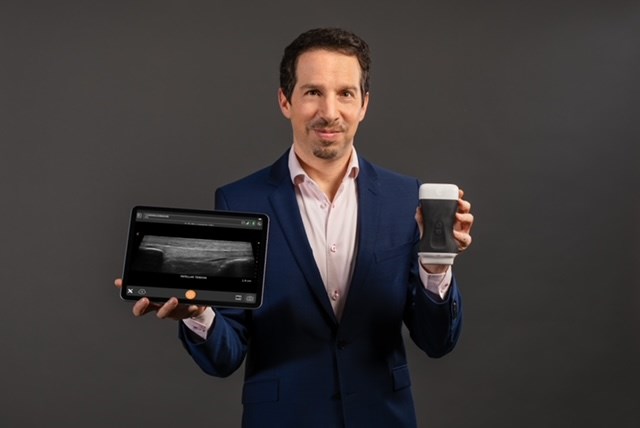B.C. life-sciences venture Clarius Mobile Health has hatched its first transaction with a Big Pharma partner.
Switzerland-based Novartis has agreed to lease 100 of Clarius’ wireless, handheld, ultrasound scanners for two years for an undisclosed amount, Clarius CEO Ohad Arazi told BIV yesterday afternoon.
The going rate to lease those scanners would be about $8,000 each for a three-year period, with ongoing costs for cloud-software being an additional $900 per unit per year, Arazi said.
Volume discounts might be available.
Clarius launched 10 years ago with help from one of its biggest backers, PenderFund Capital Management Ltd. Another investor is Nimbus Synergies. PenderFund's managing partner Maria Pacella has touted Clarius as a standout investment.
Clarius has grown revenue at a 30-per-cent annual clip, Arazi said, with sales rising to $40 million annually.
Novartis’ plan is to provide the devices to rheumatologists across Canada, enabling them to diagnose psoriatic and rheumatoid arthritis more quickly.
Diagnosing those forms of arthritis now often takes months because patients need to go to hospitals or clinics.
Clarius’ handheld devices can help rheumatologists complete diagnoses within minutes, Arazi said.
Once the two-year leases are up for the devices, the rheumatologists will be able to either buy or lease the tools, and pay ongoing cloud-software fees to Clarius.
Most of Clarius’ revenue comes from selling the devices to clinics and hospitals in the U.S.
The company operates in a 21,000-square-foot facility in the Broadway Tech Park, where most of its 160 staff are located.
“We have global subsidiaries that are more for stocking and distribution,” Arazi said. “This is our development centre, and our manufacturing plant.”
He added that Clarius has started to use AI, to make sharper images. Arazi said AI sets the “gain, depth of field and contrast” for the ultrasound images, meaning that rheumatologists do not need to worry about changing settings.
Clarius’ ultrasound devices can be used for a wide range of medical diagnoses in what Arazi called “eleven main specialty areas.”
Until now, arthritis diagnoses were not a core part of the company’s devices’ use.
“This partnership is expanding the use cases now,” Arazi said.
Novartis does not directly benefit in leasing the devices and providing them to rheumatologists.
Instead, it may benefit if there is an increase in prescriptions for a broader class of drugs to treat arthritis conditions, given that Novartis makes Cosentyx.



